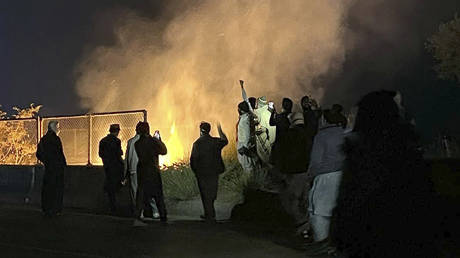ROSEMONT, Ill. – Last week, news broke the Big Ten was in talks about a potential private capital deal. Such an agreement would infuse upward of $2 billion and extend the league’s grant of rights.
Standing before a group of reporters Thursday at Big Ten Men’s Basketball Media Day, Tony Petitti called it part of his responsibility as commissioner to consider all options related to revenue generation. He also reiterated the conference’s statement after the reports surfaced about the need to “modernize.”
SUBSCRIBE to the On3 NIL and Sports Business Newsletter
Particularly following approval of the House settlement, Petitti said resources are crucial to setting a conference up for success. That’s why his goal is to explore those opportunities, including a potential strategic investment.
“The responsibility in the office that I feel as a commissioner is to maximize the resources for our member institutions,” Petitti said to On3. “We’re among the highest sport sponsorship in the country. We have, basically, the most student-athletes given the size of the league and the fact that we have 28 championships, and we have many institutions that sponsor more than the 28 championships that we sponsor. I think in a world that’s changing like it has with the settlement and revenue-share, the obligation in the conference office is to make sure that we’re resourced properly. That largely has been media deals, sponsorship, all of those things.
“So setting up a structure that can maximize that activity is important. Whether or not we need a strategic investment to help us, we’ll determine. But it’ll be done by all 18 leaders and I think it’s no different than looking at the other buckets that we have to maximize resources. It’s one other avenue that may or may not be available to us.”
Big Ten’s focus remains on SCORE Act
In the NCAA and power conferences’ quest for federal legislation, the SCORE Act remains at the forefront in the U.S. House of Representatives. Meanwhile, another bill is in the works. Sen. Maria Cantwell (D-WA) introduced the Student Athlete Fairness and Enforcement (SAFE) Act late last month.
Like the SCORE Act, it would codify the House settlement, but the SAFE Act would amend the Sports Broadcasting Act. Sen. Ted Cruz, the chair of the Senate Commerce Committee, said the act has “zero” chance.
With multiple bills in the works, Tony Petitti reaffirmed the Big Ten’s commitment to the SCORE Act and said the league hasn’t spent much time on the SAFE Act. He added the House settlement changed what the NCAA wants in legislation.
“When I first started going down [to Washington, D.C.] when I got the job, before settlement, it felt like we were kind of asking for more help,” Petitti said. “I think once we decided to settle, we set up this model with rev-sharing, there’s still NIL … I think it changed the tone in terms of, like, we’re not really asking. You asked us to change, you expected us to modernize our system. The settlement does that. We’d like to protect it so that we can actually operate it. It doesn’t mean it won’t get tweaked over time, but we’d like the opportunity to actually operate this new system. The SCORE Act does all those things. I think that’s a really important piece.
“The recent act that, I think Sen. Cantwell proposed, we haven’t spent a lot of time on [it]. I’m assuming like most things, there’s elements there that make a lot of sense. There might not be everything in that bill that lines up with what we’re currently thinking. But we feel like the SCORE Act is enough.”
Tony Petitti calls for ‘patience’ with CSC
In the time since the House settlement received final approval, the College Sports Commission launched, led by CEO Bryan Seeley. Seeley and Tony Petitti both worked for Major League Baseball, and the Big Ten commissioner said they have a good relationship.
But there has been frustration with the CSC, particularly with the NIL Go clearinghouse. Multiple collectives told On3’s Pete Nakos about delays with the approval process for deals. Petitti encouraged “patience” with the organization and system considering the launch process.
“Look, I know there’s been things reported about the speed of deals and how things have been cleared,” Petitti said. “Part of this is, we want these deals to be scrutinized. All the participants in the system want deals to be looked at fairly. So that takes some time when you’re doing it for the first time. But I think Deloitte and setting up with the cap system, I think they feel really good. And it’s only going to improve over time. I think we have the right people.
“We have an incredible amount of resources that the conferences are putting in, both in terms of resources and people to support Bryan. I just think a little bit of patience. But in fairness to coaches, they’re doing this in real time, so of course they want answers quickly. Of course they want to know what the rules are. But it will take a little time, and I’m very confident that we’re off to a good start and that we’ll get better.”






